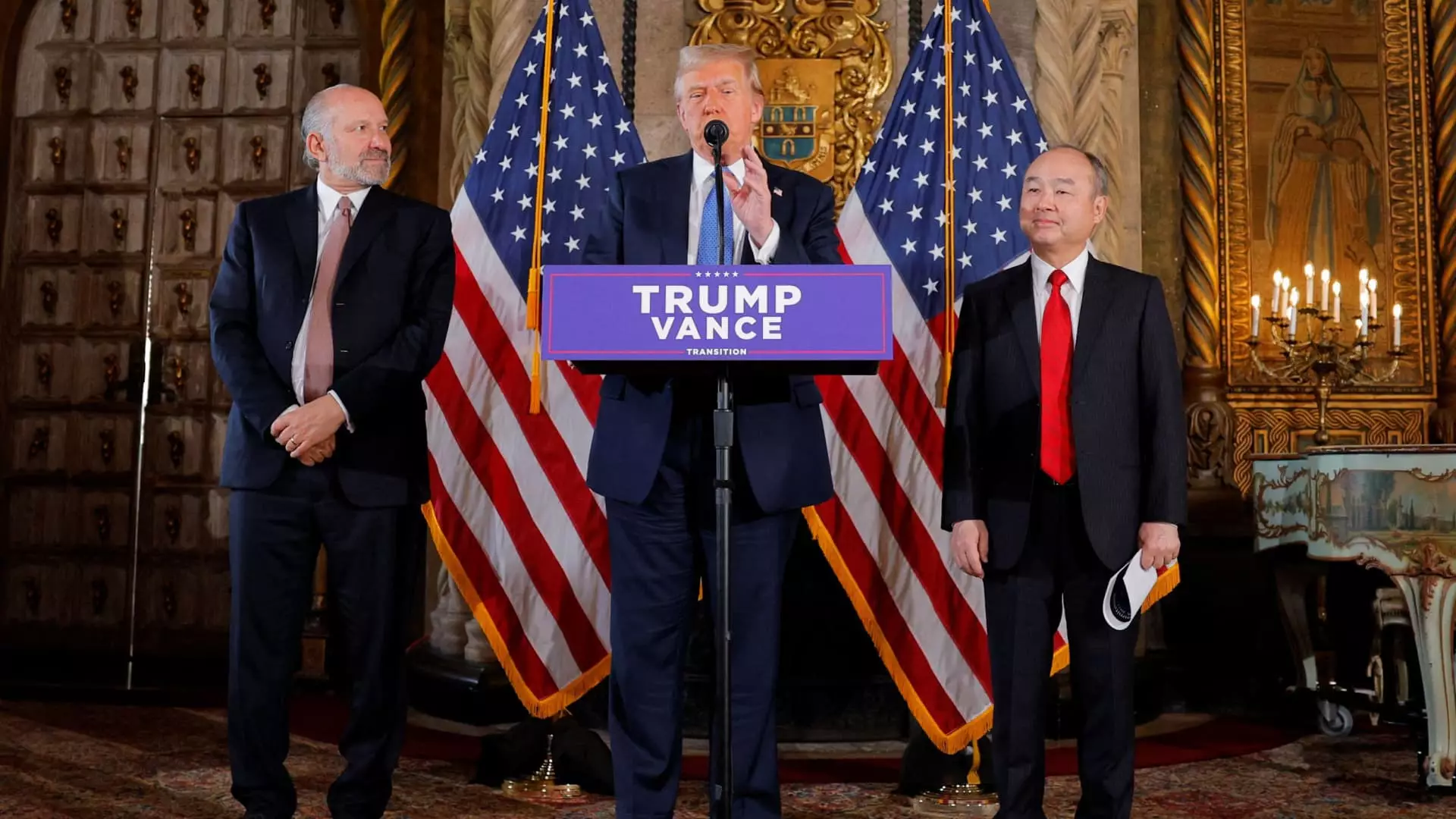In a significant declaration, Masayoshi Son, the CEO of SoftBank, pledged a staggering $100 billion investment in the United States over the next four years. This commitment was made during a high-profile meeting with then-President-elect Donald Trump at his Mar-a-Lago residence. The ambitious investment aims to create a minimum of 100,000 jobs primarily focused on artificial intelligence (AI) and related technological infrastructure. This announcement not only represents a financial powerhouse’s faith in America’s future but also reflects global investment trends that prioritize innovation and technological growth.
Son’s confidence in the U.S. economy reflects a shift in sentiment post-election, as he remarked on how he feels significantly more optimistic about the nation’s economic prospects following Trump’s victory. By describing Trump as a “double down president,” Son emphasized an intention to reinvest aggressively in the American economy. This bullish outlook has implications not just for job creation but also for the overall advancement of AI and tech sectors in the U.S., positioning the country as a leader in cutting-edge technologies.
A Historical Context
This latest investment announcement follows a similar agreement between SoftBank and Trump in 2016, where they confirmed a $50 billion investment aimed at generating 50,000 jobs. The consistent nature of SoftBank’s commitments suggests a strategic approach to fostering a stable relationship with U.S. leadership, recognizing that supportive governmental policies can facilitate transformative technology growth.
Sources of Funding and Prior Investments
The source of the $100 billion investment could derive from an array of SoftBank-controlled assets like the Vision Fund, previous capital projects, or its majority stake in chipmaker Arm Holdings. Interestingly, while Son’s announcement hints at new funding, it is possible that a portion of the announced capital may overlap with prior investments. For example, SoftBank’s recent $1.5 billion stake in OpenAI, known for its development of the famous chatbot ChatGPT, illustrates the firm’s strategic direction toward AI investments. This layering of investments signifies a robust commitment to nurturing technological advancements.
While the investment promises a significant economic boost, it is not devoid of challenges. In an era where technology evolves rapidly, the landscape for AI and emerging technologies is fiercely competitive. SoftBank’s ability to navigate this competitive market will be crucial. Furthermore, the ongoing scrutiny of international investments in U.S. firms raises questions about regulation and public sentiment surrounding foreign investment, which could impact the actual execution of these plans.
SoftBank’s pledge to invest $100 billion in the U.S. sets a high bar for future investments and aims to galvanize the AI sector along with job creation. As Son articulates his deep confidence in the U.S. economy and technological advancements, the outcomes of such substantial investments will become a key determinant in reinforcing America’s position as a technological epicenter. Ultimately, while optimistic, the road ahead will require thoughtful navigation through a complex landscape of innovation, competition, and regulatory environments.

